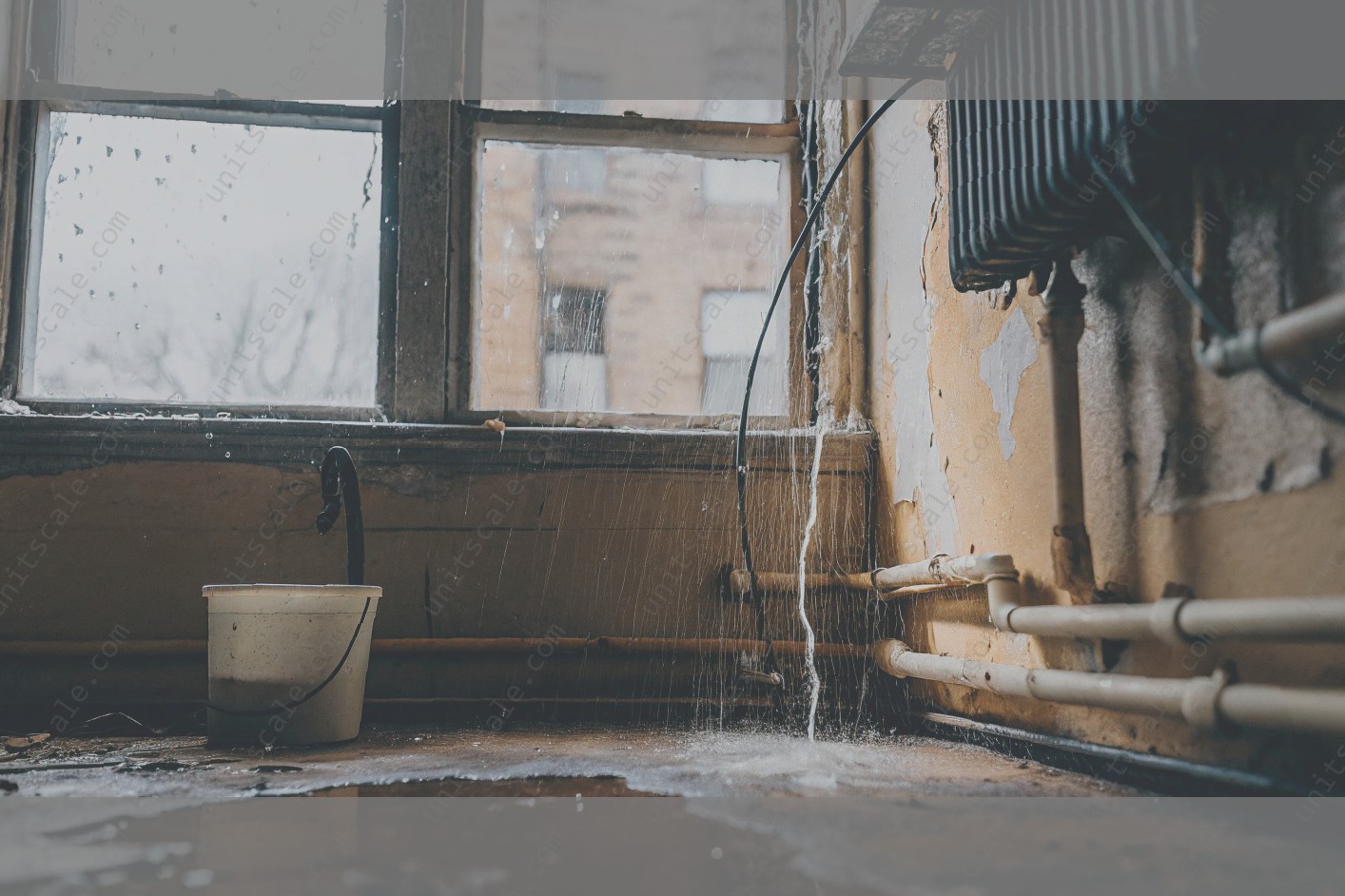The Law on Lease Agreements in New York
Lease agreements – legally binding contracts between property owners and tenants – can be especially complex, particularly in New York where the laws and regulations governing lease agreements are vast and complicated. Leases typically last for a term of one year, during which time each party has certain rights and fulfills certain responsibilities.
If you are a tenant who has a lease agreement with your landlord, both you and your landlord have obligations during the lease term. The landlord is required to provide you with "implied warranty of habitability," which means that the apartment or home must be livable, have heat and hot water, and be pest-free (among other necessities) . In turn, you must pay your rent on time – or at the time stipulated in your lease agreement – unless you have a legal reason not to, not allow anyone to come into your apartment without the landlord or his or her agent present, and continue to pay rent even if repairs are needed or the apartment has been deemed uninhabitable.
The most important thing to keep in mind is that even if your circumstances change during the term of your lease agreement and your apartment becomes, in your opinion, uninhabitable, you must still pay your rent. Otherwise, you will be in breach of contract (also known as a "lease breach").
When it is Legal to Break a Lease without Penalty
Under New York law, there are some legal grounds under which a tenant may be able to break a lease without penalty. A tenant who is forced from the premises may break the lease without penalty if: 1) the premises are uninhabitable, constituting what’s called a constructive eviction; 2) there is a rent increase that exceeds the level set forth in a prior lease, even if the landlord attempts to pass off the increases as utilities or fees; 3) the tenant has been locked out or otherwise prevented from the leasing the property; or 4) the tenant has been the victim of domestic abuse and the landlord is aware of the situation.
Uninhabitable Premises
Where a tenant is forced from the premises by conditions rendering the property unlivable, New York courts have found that the tenant may terminate the lease and continue the fight to enforce his or her rights. To terminate the lease for this reason, the tenant must be able to show that conditions at the premises are so bad that they are a constructive eviction. A constructive eviction occurs when a tenant’s living conditions reach a point such that they are no longer fit for living. For tenants claiming a constructive eviction, it is not enough to simply say that the premises are unfit for human habitation. Instead, the tenant must be able to show that the housing conditions would make an average person avoid living in the apartment. This can include things such as sewage leaks, flooding, animal infestations, electrical problems, fire code violations, and raw sewage.
Rent Increases that Violate a Prior Lease
Even though the Property Law allows owners and managers to pass along basic utility charges as a rent increase, the owner cannot charge more than 5% of the prior month’s rent unless agreed to by the tenant.
Lockout By a Landlord
A tenant not only has the right to live in the property, but it also has the right to access the property. This right includes making necessary repairs to the premises and sometimes even bringing in the police to stop domestic violence. For this reason, landlords may not lock out their tenants. Some common forms of lockouts are: twice changing the locks in one year, having someone who is not a resident of the unit change the locks, moving a tenant’s security deposit to another account without written notice, changing the locks and not giving a tenant a new key, and even rent direct pay accounts in which the landlord has access to the tenant’s bank account.
Victimization By Domestic Violence
Sometimes a tenant has to leave a property because of domestic abuse by a tenant or landlord. Condoning domestic violence is a basis for all victims to break their rent contract in order to leave.
What Constitutes Living in Uninhabitable Conditions
The definition of uninhabitable living conditions in New York is less objective than the exact definition of habitable living. There are, however, some situations where a tenant may be justified in abandoning the property and terminating the lease. In such cases, it is important to prove that the defect is serious enough to impair the health and safety of the tenants. A few examples of uninhabitable living conditions are:
Holes in the roof and missing windows
Water leaks or dampness
Infestation of rodents or insects
Absence of hot water
Unsafe stairwells
Unsafe electrical wiring
In the above examples it is advisable to have the problems in question certified by an inspector or building inspector before terminating the lease.
All tenants have the right to live in a property that is fit for human habitation during the lease period.
Landlords have a responsibility to ensure that the property complies with housing codes as well as improving any unsafe conditions that may arise during the period of the lease and alter the structure at their own expense.
Tenants also have a responsibility to report any newly developed unsafe conditions to the landlord.
Tenant Options Against Landlord Harassment
Landlord-tenant harassment cases may find their way into Housing Court. Unfortunately, there is no statutory definition of the term, which leads primarily to common law cases decided by judges.
While some cases of landlord harassment occur between the hours of 9 AM and 12 PM, others happen later in the day. Confrontational conduct between a tenant who is living in a rent-stabilized apartment but has been paying a market rent (which is legal in New York as a result of the Roberts case), as well as other "mixed use" and commercial tenants are often found by judges to be harassment. For even more clarity, tenants should look to subdivision (h) of 22 NYCRR § 208 for a list of what actions might amount to harassment: (1) removing or attempting to remove a tenant’s possessions from his to her dwelling without the tenant’s consent; (2) use of force or threats of force to the tenant, the tenant’s family or guests; (3) actual or threatened reprisals against a tenant for filing a complaint or appearing as a witness in a complaint against the landlord; (4) making or causing to be made a false statement of fact to the tenant in order to induce or compel the tenant to vacate or surrender the premises; (5) creating conditions in the tenant’s residence that would cause physical harm to the tenant; (6) constructively forcing or attempting to induce a tenant to vacate or surrender the premises by deliberately permitting the condition of the residence to deteriorate; (7) permitting noise, smoke, odors, vapors and/or vapors to enter the tenant’s premises from outside sources; (8) intentional, systematic and/or continuous interference with a tenant’s right to the quiet enjoyment of the premises; and (9) repeated refusal to perform reasonable repairs to the tenant’s residence.
Terminating a Lease If You Are in the Military
There are special legal protections for service members and their dependents due to their unique situation. The federal Servicemembers Civil Relief Act ("SCRA"), 50 U.S.C.A. §§ 3901-4043, applies to all active duty members of the military and to their dependents. It supersedes all state laws and unlike the Soldiers’ and Sailors’ Civil Relief Act, there is no New York equivalent of the SCRA. The SCRA provides special protection to military members when they enter into a lease agreement.
When military service interferes with a tenant’s ability to pay rent or keep a lease, the SCRA provides that the individual can terminate the lease without penalty. If the individual is on active military duty, then he or she is allowed to cancel the lease up until 30 days from the day he or she receives military orders (Active Military Duty Order). In order for the military order to qualify for cancellation, the tenant must have been on active military duty after entering into the rental lease and the tenant must reside in the rental unit before receiving the Active Military Duty Order.
In order to cancel a rental agreement protected by the SCRA, the individual must provide written notice to the landlord along with a copy of the Active Military Duty Order. Then he or she must return the keys to the rental unit and vacate the unit within 30 days of providing notice.
How an Early Termination Clause Works in Your Lease
Early termination provisions in New York lease agreements give landlords and tenants the ability to end a lease before its expiration when certain predetermined conditions are met. In order to enforce an early termination clause, however, the applicable terms and conditions must be clearly set forth in the relevant lease. The most common conditions to satisfy for an early termination are:
A tenant’s ability to terminate a lease early for a medical hardship is regulated by New York Real Property Law § 227. Generally, in order to comply with the statute, the lease agreement must specifically provide that the tenant has the right to terminate the lease early for a medical hardship , as well as the conditions under which it may be terminated. Upon this happening, the lease will terminate at the end of the one-month period following receipt by the tenant of the notice of termination.
It is important to note that a tenant must comply with the requirements set forth in the relevant lease in order to fully exercise its rights under an early termination provision. For example, a tenant intending to exercise its rights to an early termination must send the required written notice of termination prior to the expiration of the time period specified in the relevant lease. Failure to do so may result in the loss of such termination right. In that regard, the lease will remain in effect instead of terminating as the tenant had originally intended.
How to Legally Break a Lease in New York
You should take certain procedural steps to ensure you meet the legal requirements for breaking a lease. If you try to leave your lease without following the procedures set out below, there is the risk the landlord could still try to come after you for the remaining months on the lease. The procedural steps include:
- Document issues with photos. When something happens in your apartment that causes you concern, you should get out your camera and start photographing this as soon as possible. This might include a flood from the neighbor above you, cracks in the walls, mold, etc. Take a bunch of photos so you can prove what the apartment looked like at the time of your departure. You should also make notes about when the damage occurred, how long it took the landlord to respond and what happened following the repairs.
- Give notice. Although some landlords in New York City are quite unresponsive, having them fix issues can be important to demonstrate that you complied with the lease. Make sure you put together a letter requesting repair and provide it to the landlord. This could give you the legal right to break the lease if the landlord does not provide a timely repair and does not attempt to otherwise resolve the issue in a reasonable time. In other words, if you request something be fixed and the landlord fails to do so, you should have a legal right to leave without further consequence.
- File with housing authorities. Although landlords in NYC do have a lot of control over their tenants, you do have some premises liability protections to help you. If a landlord refuses to respond to your concerns about mold or flooding, report the conditions to housing authorities and try to have them correct them. If you can demonstrate you tried to resolve a problem in the apartment, this may help your defense even if you ultimately have to vacate the unit.
Possible Ramifications of Breaking a Lease
If the reason for breaking your lease is not legally justifiable, there will be some consequences. The landlord may be entitled to keep your security deposit and/or he may sue you for the remainder of the rent (from the time you vacate the apartment through the end of the lease term). Some landlords will include an option in the lease that requires the tenant to pay a liquidated damages clause, commonly referred to as a lease break fee. This clause typically provides for payment of the rent from the time of occupation through the end of the lease term, and either 1-3 months rent thereafter. It is important to read your lease to see if your agreement contains this provision. If so, comply with the requirements and try to minimize the landlord’s losses. If the landlord does not attempt to mitigate the damages, the lease break fee will likely be the only item he will seek against you.
Some lease agreements will provide that you must vacate the premises by last day of the month; others provide that you have vacated the apartment by sending written notice to the landlord. In some instances, the tenant is required to give a certain number of days written notice before the end of a month before the lease expires. Otherwise, the lease will automatically renew for a specified period of time. The individual landlord has a responsibility to obtain new tenants when such a provision is included in the agreement. The landlord’s obligation may be to use his or her reasonable best efforts to find a replacement tenant at the tenant’s expense. New York law requires the landlord to try to mitigate the damages by making "reasonable efforts" to rerent the apartment, even if the lease doesn’t specifically state that it’s the landlord’s responsibility. (See, e.g., Landmark Props. Corp. v. James, 197 P.2d 704 (Colo. 1948); O’Donnell v. Key Apartments, 2003 WL 21658825 (E.D. Wis. 2003)). This simply means that the landlord is responsible for making efforts to find a new tenant once the tenant has moved out, but is not legally required to terminate the lease early to avoid vacancy. If the new tenant pays less rent than outlined in the lease agreement, this will reduce the damages for which the former tenant is liable (not the new tenant). If the tenant continues to live in the apartment until the date specified in the lease, he or she must pay the rent and is entitled to all of the legal rights and remedies of a tenant. Once the lease expires, the tenant must vacate the premises or the landlord can file a holdover petition to recover possession of the apartment.
Getting Legal Help
When contemplating breaking a lease it is always a good idea to ask a lawyer whether you have a legal basis to do so. Even though you may be convinced that you have a good reason to break the lease, a lawyer will be able to provide an objective analysis of the situation. The attorney will be able to examine your lease and determine if you have a legal basis to terminate it.
If you believe that you are entitled to receive the security deposit back and to be released from the lease if you break it, you should ask an attorney whether that is your legal right.
A lawyer can also provide some insight as to whether you have a legal basis to sue the landlord . It is also good to have an understanding whether any legal fees incurred in breaking the lease would be recoverable if you successfully sue the landlord and win. Even if you do not believe you have a legal basis to sue a landlord, it is a good idea to consult with an attorney to understand the possible pitfalls / consequences of breaking the lease.
There are a number of places where an attorney can be located. Courts and bar associations may have referral services that can assist a person with locating a lawyer. Legal Aid can also assist with finding an attorney.



